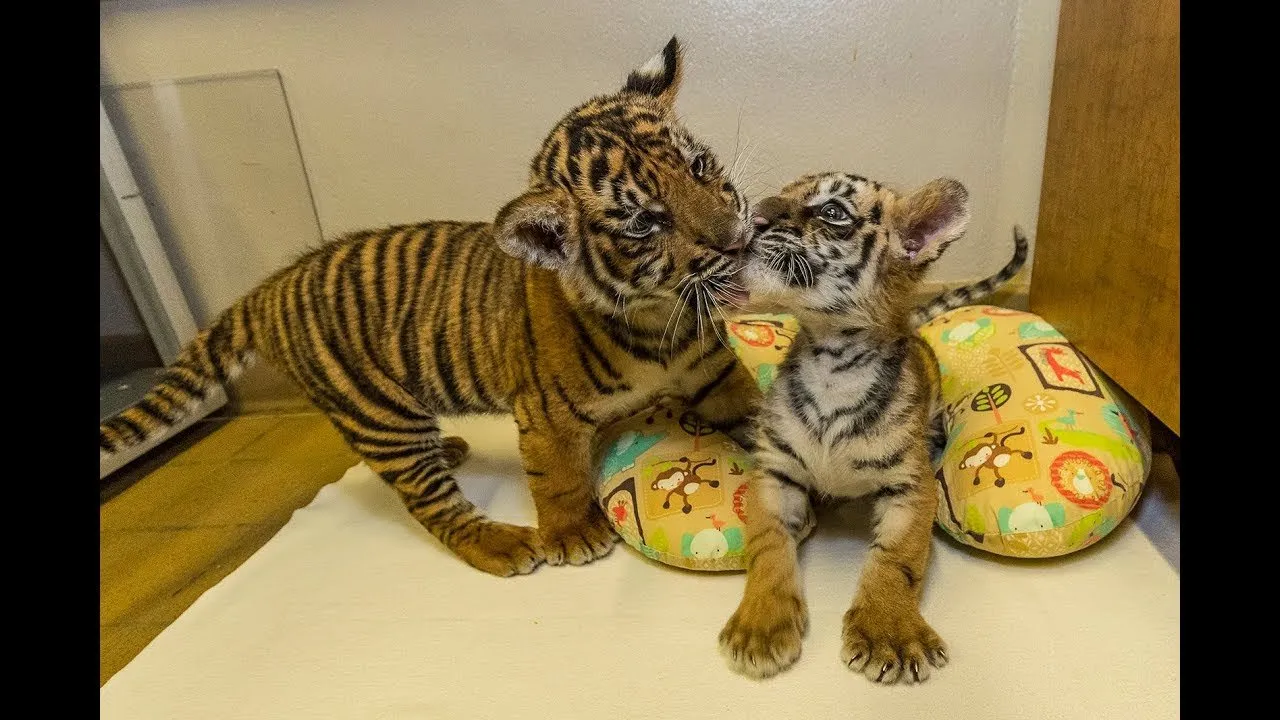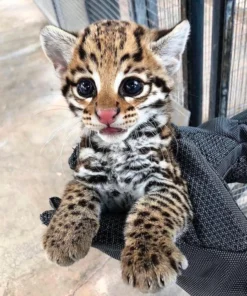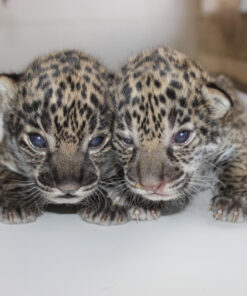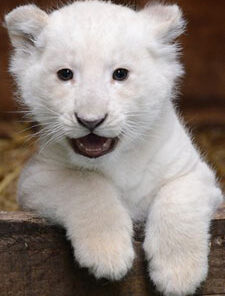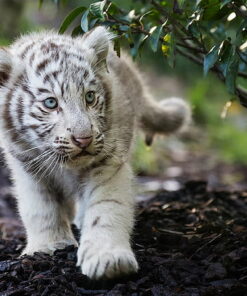$500.00 – $5,500.00
Bengal Tiger Cubs For Sale, We are a breeder of tiger cubs and a wide variety of exotic animals such as cheetah cubs, cougar cubs, jaguar cubs
Bengal Tiger Cubs for Sale : A Complete Guide to White Bengal Tiger Cubs and More
Bengal tigers are one of the most iconic and majestic animals in the world. With their powerful build, striking orange coats with bold black stripes, and captivating amber eyes, they are symbols of strength and beauty. As the largest species of tiger, Bengal tigers can inspire awe in anyone who has the opportunity to see them up close. However, in recent years, interest has grown in owning exotic animals like Bengal tiger cubs as pets, especially among collectors and exotic animal enthusiasts.
Owning a Bengal tiger cub is a complex and serious undertaking, requiring extensive knowledge, resources, and legal clearances. There are even white Bengal tiger cubs for sale, which are exceedingly rare and highly sought after due to their unique appearance. In this guide, we’ll explore what it means to own a Bengal tiger cub, including important considerations, care needs, legal factors, and much more.
Bengal Tiger Cubs : What Makes Them Special?
Bengal tigers (Panthera tigris tigris) are native to India, Bangladesh, Bhutan, and Nepal. They are known for their striking appearance and are often recognized as the epitome of wild beauty. Bengal tigers are apex predators, meaning they are at the top of the food chain, with few natural enemies other than humans.
1. The Natural Beauty of Bengal Tiger Cubs
At birth, Bengal tiger cubs are impossibly adorable. Small, fluffy, and innocent-looking, they have a soft coat of fur and delicate features. Their large eyes and tiny paws make them an attractive option for those drawn to the idea of raising exotic animals. However, while they may look cute and cuddly as cubs, these animals will grow into large and powerful predators capable of causing serious harm if not properly cared for and trained.
2. White Bengal Tiger Cubs: A Rare and Unique Phenomenon
White Bengal tiger cubs are one of the most sought-after varieties of Bengal tigers. White tigers are not a separate subspecies but rather a rare genetic variation of the Bengal tiger. Their white coat results from a recessive gene that causes a lack of pigment in the skin, resulting in their stunning white fur, black stripes, and icy blue eyes.
The rarity of white Bengal tiger cubs for sale makes them extremely desirable for collectors, zoos, and wildlife parks. White tigers are believed to be even more majestic than their orange counterparts because of their unique and ghostly appearance. However, breeding white tigers comes with its own set of challenges, including health issues related to inbreeding.
The Challenges of Owning a Bengal Tiger Cub
While the idea of owning a Bengal tiger cub may seem enticing, it’s essential to consider the many challenges and responsibilities involved. These creatures are wild animals with specific care requirements, legal restrictions, and ethical concerns.
1. Legal Restrictions and Considerations
Before seeking Bengal tiger cubs for sale, it’s crucial to research and understand the legalities of owning exotic animals in your area. In many countries and states, owning a Bengal tiger without proper permits is illegal. Some places have outright bans on private ownership of wild animals, while others may have strict regulations regarding where and how the tiger can be kept.
Obtaining a license or permit to own a Bengal tiger cub is often an expensive and complex process. You will likely need to demonstrate that you have the necessary facilities, expertise, and resources to care for the tiger and ensure the safety of the community. Additionally, the sale and trade of white Bengal tiger cubs are often more closely regulated due to their rarity and higher demand.
2. Ethical Considerations
Beyond legal matters, owning a Bengal tiger cub raises ethical concerns. These are wild animals that belong in their natural habitat. Raising them in captivity, especially in private homes, can deprive them of the space, socialization, and natural environment they need to thrive. The confinement of a large, intelligent predator in a domestic setting can lead to behavioral and health problems for the animal.
Ethical concerns are particularly important when it comes to white Bengal tiger cubs, as the selective breeding process often used to produce them can lead to genetic defects and health issues. When looking for white Bengal tiger cubs for sale, it’s essential to ensure that you are purchasing from reputable, ethical breeders who prioritize the health and well-being of the animals over profit.
3. Space and Habitat Requirements
Tigers are territorial animals that require vast amounts of space to roam and explore. In the wild, they can claim territories as large as 60-100 square miles. While it’s unrealistic to provide this amount of space in captivity, anyone considering purchasing a Bengal tiger cub must be prepared to provide a large, secure enclosure that meets the tiger’s physical and psychological needs.
A suitable enclosure should have enough space for the tiger to run, climb, and explore. It should include areas for swimming, hiding, and engaging in natural behaviors like stalking and pouncing. Enrichment activities, such as puzzle feeders, logs, and toys, are essential for keeping the tiger mentally stimulated and preventing boredom.
4. Diet and Nutrition
Tigers are obligate carnivores, meaning their diet consists exclusively of meat. In the wild, Bengal tigers hunt large prey like deer, wild boar, and water buffalo. In captivity, you must provide a similar diet of raw meat to keep the tiger healthy.
Feeding a Bengal tiger cub or an adult tiger is an expensive and time-consuming task. A full-grown tiger can consume up to 20 pounds of meat in a single day. Additionally, their diet must be supplemented with vitamins and minerals to prevent deficiencies.
The cost of feeding a tiger can add up quickly, with a monthly food bill that can range from hundreds to even thousands of dollars. It’s essential to ensure that you have the financial means to support a tiger’s dietary needs for its entire life, which can span 15-20 years in captivity.
5. Veterinary Care
Tigers require specialized veterinary care from professionals experienced in working with large carnivores. Regular checkups, vaccinations, and parasite control are essential for keeping your Bengal tiger cub healthy. Finding a qualified exotic animal veterinarian can be difficult and expensive, and the costs of treating a tiger can quickly add up.
Additionally, as Bengal tigers grow, they may develop health problems such as joint issues, dental problems, or obesity, especially if they are not given enough space or exercise. The selective breeding of white Bengal tiger cubs can also lead to genetic health issues, including deformities, neurological problems, and immune system deficiencies.
White Bengal Tiger Cubs for Sale: A Unique Opportunity
For those looking for a truly rare and magnificent animal, white Bengal tiger cubs offer a unique and stunning option. However, because of their rarity and the ethical concerns surrounding their breeding, it’s essential to proceed with caution when purchasing a white tiger cub.
1. The Rarity of White Bengal Tiger Cubs
The white tiger’s distinct coloring is due to a recessive gene. This means that two Bengal tigers carrying the gene must mate to produce white cubs. In the wild, this happens only rarely, as the gene is uncommon, making white Bengal tiger cubs extremely rare.
In captivity, breeders sometimes deliberately pair tigers with the recessive gene to produce white offspring. However, this selective breeding can lead to health issues, as the gene pool becomes smaller and smaller, increasing the risk of inbreeding.
2. Ethical Concerns with White Bengal Tigers
The demand for white Bengal tiger cubs for sale has led some unethical breeders to engage in inbreeding practices to produce more white tigers. Inbreeding can result in a higher likelihood of genetic defects, including skeletal deformities, kidney problems, and compromised immune systems.
When considering purchasing a white Bengal tiger cub, it’s crucial to research the breeder’s practices and ensure that they are breeding responsibly and ethically. Look for breeders who prioritize the health and well-being of the animals over profit and who maintain genetic diversity in their breeding programs.
The Cost of Bengal Tiger Cubs
Owning a Bengal tiger cub comes with significant financial responsibilities. The price of a Bengal tiger cub can vary depending on factors such as the cub’s lineage, health, and rarity. White Bengal tiger cubs are often more expensive due to their rarity and the challenges associated with breeding them.
In addition to the initial purchase price, you must also consider the ongoing costs of caring for a tiger. This includes:
Food: Tigers require a diet of raw meat, which can be costly.
Veterinary care: Exotic animal vets are expensive and may require specialized treatments.
Housing and enrichment: Building and maintaining a large, secure enclosure with appropriate enrichment items can be costly.
Training and handling: Professional trainers may be necessary to safely handle and interact with a tiger as it grows.
The initial purchase price for a Bengal tiger cub can range from $2,000 to $10,000 or more, depending on the cub’s rarity and health. White Bengal tiger cubs can fetch even higher prices due to their limited availability.
Conclusion: The Responsibility of Owning a Bengal Tiger Cub
Owning a Bengal tiger cub, especially a white Bengal tiger cub, is a serious commitment that requires extensive resources, knowledge, and dedication. While these creatures are undeniably beautiful and fascinating, they are also wild animals with specific needs that must be met to ensure their health and well-being.
For those who are passionate about Bengal tigers but may not be able to provide the necessary care, there are other ways to support these incredible animals. Contributing to wildlife conservation efforts
| sex | Female, Male |
|---|---|
| Purchase Option | 100% Payment, Reserve |
Related products
EXOTIC CUBS FOR SALE
$2,100.00
EXOTIC CUBS FOR SALE
$500.00 – $6,000.00
EXOTIC CUBS FOR SALE
$500.00 – $6,500.00
Sale!
EXOTIC CUBS FOR SALE
EXOTIC CUBS FOR SALE
$500.00 – $6,500.00
EXOTIC CUBS FOR SALE
$500.00 – $6,500.00
EXOTIC CUBS FOR SALE
$500.00 – $6,500.00
Sale!
EXOTIC CUBS FOR SALE
$500.00 – $6,500.00





